Cat owners out there know having a cat has its unique perks; not only are these animals extremely clean but also they are very responsible and don’t require a lot of care compared to other pets.
However, I am pretty sure as a cat owner, you know how a litter box can be a pain in the neck, but this is nothing compared to when your cat does not use the litter box. When has it discovered your warm kitchen mat or laundry pile as an elimination site, a nuisance, right?
All in all, felines do not do this on purpose or to irritate us. When our cats start behaving like this, it is crucial that we take quick action before the situation gets from bad to worse.

Table of Contents
Signs Your Cat May Have a Problem Beyond the Litter Box.
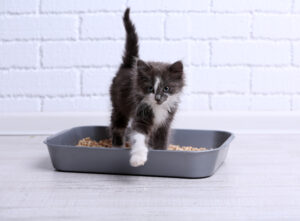
As cat owners, we tend to play doctor a lot with our fluffy friends. We observe most of the time and try to determine the cause of their problem without seeking any assistance from professionals; in this case, I mean vets. I am not condemning this; however, I am calling on us to make a habit of seeking help from experts when our ways or methods fail to get the job done.
I won’t dispute the fact that a cat’s behavior around the litter box implies a lot about its health; rather, I will instead add that it helps us also determine other problems that occur beyond the litter box. Having established this, here are a few signs that your cat has problems beyond the litter box.
– Eliminating outside the litter box consistently
I bet you probably know by now that cats eliminating outside the litter box are inevitable. Despite viewing our cats as the perfect creatures, I hate to be the one to remind you that nothing is perfect, and occasionally they too have slip-ups. This does not mean that we should make it a habit to clean up after them and pretend everything is normal; too much of something is poisonous. If this habit persists, you should seek medical attention for the cat, and if you have ascertained the problem is not medical, try and devise other ways to stop this behavior.
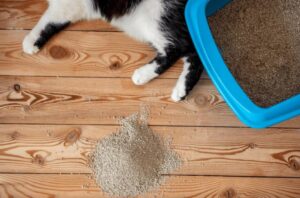
– Urine spraying
This is particularly annoying behavior, especially if it persists. Feline urine doesn’t necessarily smell like roses on a new day; it’s actually very contrary to this; it leaves a pungent smell that makes the house uninhabitable. As if to add insult to injury, the cats mainly focus on the doors and windows while urine spraying; sounds unbearable, right? The best approach to this problem is still medical assistance. If you have an ok from the doctor, then here are a few other reasons why cats may spray.
- To mark and establish their territory
- As a sign that they want to mate
- To express their frustrations, such as diet change.
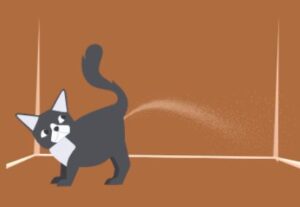
– Spending too much time in the litter box
Cats are only supposed to spend a substantial amount of time in the litter box. It is important to observe our cats and note the maximum amount of time they take in the litter box. Any changes in this routine should be a cause for alarm and a sufficient reason to visit the vet.
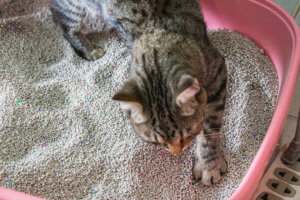
– Meowing while in the litter box
Cats sometimes meow before or after using the litter or on rare occasions while in the litter box. This is actually caused for alarm, and I would advise you to instantly visit the vet. Felines vocalizing in the litter box might be a sign of many things including,
- The cat may be experiencing painful bowel movements, urinary tract infection, or even urinary tract blockage.
- They might also vocalize to scare away predators.
– Lethargy
This is a state where the cat is generally inactive and has no psych to do anything. The kitty typically feels and acts lazy at all times. If your feline starts to react in this way, take quick action and rush to the vet.

– The heightened rate of water intake
Water is a necessity in the survival of any living thing, and this does not exclude cats. As ken cat owners, we are promptly aware when their level of water intake increases or decreases. Do not be tricked into believing that an increased rate of water intake does not cause for alarm. This condition is known as polydipsia. This may seem normal but might be a sign and symptom of other several diseases such as
- Kidney dysfunction
- Liver disease
- Diabetes
- Urinary tract infection

– Loss of appetite
As you can see, this is not only the case in humans but also in cats. Loss of appetite is a major sign that something is amiss in felines. Now being cat owners, we all know how our kitties love food; it’s even hard to imagine them skipping meals. This should immediately be addressed, and the necessary measures should be taken to curb it and prevent any more harm to our cats.

– Weight loss and poor hair coat
Cats are at their peak of being adorable when they are healthy and fluffy. A lot of factors can contribute to a cat’s poor hair coat and weight loss. Often this is an indication that the cat is not being fed well or it lacks a balanced diet.

– Excessive visiting of the cat litter
Once you have decided to be a cat owner, it is important that you know, cats one excellent, dare I say one of the best disease carriers known today as if to add more fuel to the fire, they are excellent at hiding signs so your cat may be Ill, but you will not even have a clue about it. However, noting small changes in their behavior helps lessen the crisis. Excessive visits to the litter box is a definite cause for alarm and may be a sign of urinary tract blockage or bladder stones.
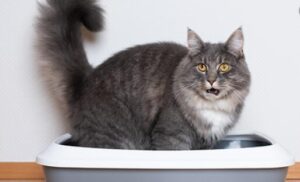
Potential Reasons Why Cats Won’t Use the Litter Box
A litter box is a necessary evil in every household that harbors a cat. Despite owning several litter boxes, this does not guarantee that your cat will utilize them. We know how picky cats sometimes tend to be; they are particularly most comfortable in a clean environment. We should always strive to make our cat litter boxes as cat friendly as possible. When your cat starts soiling the house, do not panic, I got you covered. Elimination problems are common in cats of all walks. Below I have simplified these reasons into two main categories, namely, medical reasons and behavioral reasons.
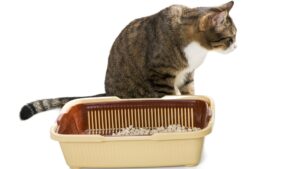
1. Medical reasons
These are generally reasons that affect your cat’s health and eventually lead to difficulty in using the litter box. They include;
Urinary tract infections
In cats, despite being strong animals, urinary tract infections really weigh them down and can kill them in hours. The urinary tract infections cause the cat to frequently enter the litter box but produce small amounts of urine. There is an increase in the urge to use the litter box, and eventually, the urge may come when they are far from the litter box and eventually lead to the cat eliminating outside.
Feline interstitial cystitis
Feline interstitial cystitis is a type of neurological disease that impacts the cat’s bladder. Its major sign is straining during urination. The feline also licks where they pee from and occasional blood spots in the urine. This also leads the cat to eliminate out of the litter box due to an increased urge for urination.
Cognitive disorder
This is specifically common in old cats. This is a condition that affects the memory of cats as they get older. As they age, they tend to forget even the basics of things like where the litterbox is located. And in some serious circumstances, the feline might wind up, forgetting how to use the litter box completely.
Arthritis
Yes, you heard it right! Cats, too, can contract arthritis. It is as fatal to them as it is to us and affects their movement and bones. This consequently leads to difficulty in accessing the litter box, especially if it is high.
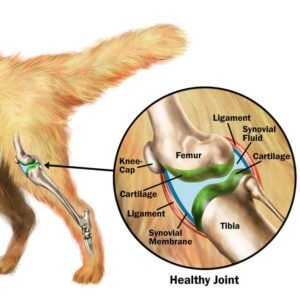
2. Behavioral reasons
These are factors that have been contributed as a result of other changes such as physical or environmental. They are listed below
Type of litter
Cats have heightened senses and, as a result, are highly sensitive to the slightest of noises or smells. Cats are very choosy animals, and you often find out that cats prefer different kinds of litter depending on the type of cat. If the litter you have selected is not suitable for your cat, then the feline would prefer eliminating away from the litter box. Surprisingly cats do not like liners. I mean litter box liners; if you notice your cat pulling on them, I would advise you to quickly get rid of them before you find surprises in your laundry basket or, worse yet, your doormat.
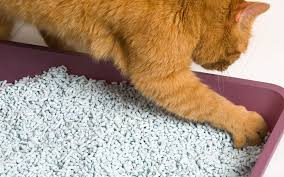
Size of the litter box
As I said earlier, cats are very choosy animals, especially when it comes to their elimination points. If you did not know cats love spacious areas, in case you have a tiny litter, I advise you to quickly change it. Felines prefer a large litter box to eliminate in. Also, the height of the litter box determines if the cat will be comfortable using it. With some cats, specifically old cats, and arthritic cats, it is challenging for them to use high litter boxes due to their conditions, and consequently, they decide to go for the easier option.
Location of litter
I guess everything narrows down to the cats being choosy, right? Cats develop tendencies to places where they want to eliminate if the location of their litter box does not meet this criterion, then they avoid the litter box completely.
Bullying by other cats
Some cats tend to establish dominance, and frankly speaking, this is an ordinary can’t believe in most pets. With cats, one is never enough, and in a home where this is the situation, bullying is the norm. Just like any other ecosystem, there are strong and weak. For the weak cats, they tend to be chased away from elimination points leading to them soiling the floors. As responsible cat owners always ensure each cat has their litter box and there is an extra one.

How to Stop Inappropriate Litter Box Behavior?

In order to stop or deal with something, you need to find the root or cause of the problem.
First of all, if your cat is soiling the house, observe it keenly for a specified period of time and derive the root cause of the problem.
Is it being bullied? Is it unwell? Does the litter material meet the cat’s standards? These are only but a few questions to answer before devising a solution. After all, you can not solve a problem without its cause, right? After eliminating the possibility of any illness and having been cleared by a medical professional, here are other ways to tackle the menace.
Have multiple cat litters – in a home where there are several cats, it is important to have a litter box for each feline and if possible, an extra one just in case. This will tackle the problem of bullying.
Type of litter – I assume you already know your cat’s preferences. The kind of litter it is comfortable around and the type of litter it despises. Ensure that the cat’s litter type is what it likes, after all, it is the one using the litter box.
Change the location of the litter- If it’s not using the kitty litter it must be eliminating elsewhere I presume, try moving the litter box to this location and observe the feline.
How Do I Determine Which Cat is Eliminating when I Have More Than One Cat?
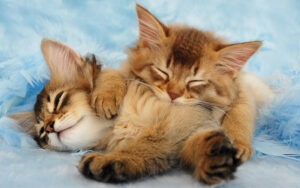
As I already said with cats, one is rarely enough, but having many cats also means more responsibility for the owner. Challenges come in where there is soiling and you can barely determine which cat is performing this hideous act, especially if you barely spend a lot of time at home and the chances of you catching it in the act are close to zero.
In rare situations, confinement and exclusion of the feline to discover who is soiling may work. However, if bullying is also the problem separating the cats might just as well solve your problem.
Cats are territorial creatures and depending on how you view this, it could be an advantage or disadvantage. As an advantage, you should know that if it soils at a specific spot, the chances of it returning to the same spot is high all you need to do is to place a camera there and wait for your culprit.
A fluorescent dye or none toxic crayon can be used to identify the cat. While using this method, ensure each cat is issued with a different color so as to easily identify the cat that is not using the litter box.
Will Medication Stop My Cat from House Soiling?
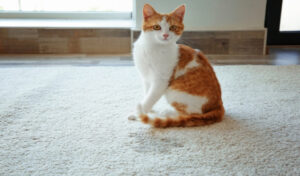
The simple answer is yes, however it is only possible if the problem is health-based. Here are a few recommendations.
- Anti-anxiety pills help to spray
- For arthritic cats, drugs can help solve the litter box problems as well.
What Can I Use to Clean My Cat Soiled Carpet, Couch, and Other Household Items?

I have to admit this is a complex question. This is mainly because depending on your type of surface, the method of cleaning the cat waste differs. However, I have devised a shortlist that generally works for all surfaces.
- Instantly dry up the spot especially where urine is involved
- Avoid using ammonia-based cleaner, otherwise, other mild cleaners are allowed.
- Soak the area for a while then clean it with a clean sponge afterward
- Do not let the cat near the spot.
- Use enzymatic cleaners that discourage the cat from returning to the same spot.
How Can I Stop My Cat from Spraying?
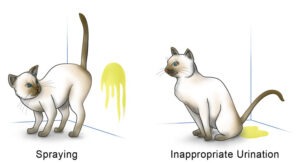
Yes, you can! This is really easy to execute, especially if you understand what causes the cat to spray in the first place. Here are a few pointers on how to stop this
- Ensure your cat is spayed or neutered before it is six months old especially male cats.
- Give your fluffy friend a lot of attention.
- Keep stray cats away from your home so as to avoid your cat from feeling threatened.
- Ensure they do not observe other pets, especially dogs, while they urinate cats are very good at imitating.
Conclusion
I can list a wide variety of reasons why cats do not use their litter boxes but it all narrows down to one important point, cleanliness. Our cats are very clean animals, and I bet if there was a way to clean their own litter, they would happily do it but seeing that they are limited and heavenly depend on us, shouldn’t we come through for our fluffy friends? It is our responsibility as cat owners to ensure that our cats litter boxes are best suited to their needs. Otherwise, we will be picking and cleaning up after their mess for quite a while, which seems like an inconvenience, doesn’t it?

